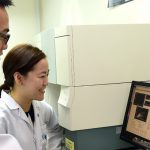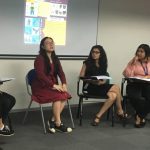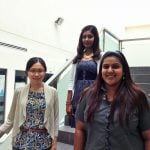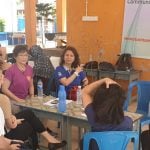Two IMU PhD scholars share their journey from an undergraduate programme to postgraduate candidature, where their shared passion for Biomedical Science has led them onto a transformative path involving developing important skills, overcoming challenges, and taking on the exciting prospects of their research projects.
Zi Ni: Overcoming Doubt, Pursuing Passion
Zi Ni’s journey began with a daunting prediction during high school – that her grades were insufficient for a successful career in Biomedical Science. Undeterred, she embraced her passion and embarked on a degree in the field. The initial curiosity and enthusiasm propelled her through a comprehensive curriculum, delving into human anatomy, genetics, microbiology, and more. The pandemic posed several challenges, but her determination and proactive approach to remote learning ensured her success.
As an undergraduate, her experiences extended beyond the classroom. She honed essential skills in observation, accountability, and proactive learning. Engaging in research projects, Zi Ni developed a keen eye for detail and critical thinking. Multiple internships further enriched her knowledge and laboratory expertise.
Chia: Navigating Passion and Uncertainty
For Chia, Biomedical Science was always his dream discipline. Earning a full scholarship for his undergraduate journey at IMU, he set out to become a researcher. The curriculum exposed him to diverse subjects like microbiology, biochemistry, and molecular biotechnology, sparking his curiosity in various areas. As his undergraduate studies concluded, Chia faced the dilemma of pursuing further studies or a career. Eventually, he found a project aligned with his interests and embraced the path of a PhD candidate.
Challenges and Growth: A Common Thread
The challenges faced by Zi Ni and Chia during their journeys from undergraduate to PhD candidature were diverse, yet a common thread of resilience and growth united them. The sudden outbreak of the COVID-19 pandemic proved to be a formidable obstacle for both, disrupting their university experiences and creating unforeseen hurdles.
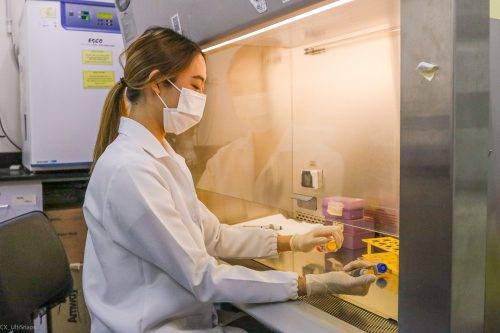
For Zi Ni, the transition to remote learning posed initial difficulties in accessing online materials and resources. However, their proactive approach and open communication with lecturers ensured she had the necessary tools to succeed in her studies. The isolation brought about by the pandemic also impacted her campus life, limiting opportunities for social interaction and extracurricular activities.
Nevertheless, she persevered, finding solace in study groups and maintaining a healthy work-life balance. This period of uncertainty allowed Zi Ni to develop self-sufficiency and time management skills, ultimately leading to personal growth and maturity.
Chia also faced challenges arising from the pandemic. As an undergraduate, he had to adapt to a hybrid learning environment, which required self-motivation and dedication to stay on track. The closure of university facilities impacted their access to resources and affected their social well-being, as he was away from family and friends. To overcome these obstacles, he learned to be proactive and sought out solutions independently before seeking help from mentors and peers. This proactive attitude not only assisted him in resolving academic challenges but also contributed to his personal development.
They both encountered setbacks during their research endeavours. Zi Ni faced difficulties in refining laboratory protocols and obtaining reliable results, while Chia grappled with contamination issues and uncertainties in their microalgae research. However, through perseverance, problem-solving, and seeking guidance from mentors and peers, they emerged stronger and more determined to overcome the hurdles.
Skills and Values that Transcend Boundaries
The journey from undergraduate to PhD candidature instilled in both individuals a set of skills and values that transcended the realm of academia, making them well-equipped for future endeavours.
Observational skills, an essential aspect of scientific research, were honed throughout their undergraduate studies. Zi Ni, through lab demonstrations, learned to pay attention to intricate details, while Chia developed a keen eye to identify trends and patterns in their research findings. These skills go beyond scientific exploration, as they empower individuals to be attentive and perceptive in various aspects of life.
Accountability and time management were also integral skills developed during their undergraduate journey. Balancing multiple responsibilities, such as academic assignments, extracurricular activities, and personal commitments, taught them the importance of prioritisation and organisation. These skills are invaluable in any professional setting, fostering a sense of responsibility and ensuring efficient utilisation of time and resources.
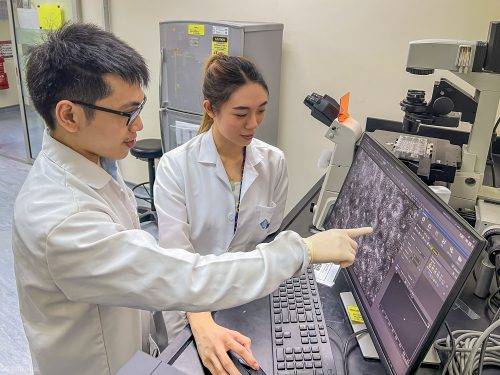
Open-mindedness emerged as a core value for both Zi Ni and Chia. Embracing diverse perspectives and accepting constructive criticism allowed them to grow as individuals and researchers. In collaborative settings, such as group projects and research teams, open-mindedness fostered harmonious interactions and propelled them towards collective success.
The spirit of proactive learning and self-discovery formed a fundamental part of their journeys. They recognised that the pursuit of knowledge extended beyond classroom lectures and that true understanding came from seeking answers through independent research and exploration. This curiosity-driven approach fuels a passion for lifelong learning and ensures adaptability in an ever-evolving scientific landscape.
As they progress in their PhD projects, these skills and values will continue to guide them on their scientific pursuits, pushing the boundaries of Biomedical Science and contributing to advancements in healthcare for generations to come.
Future Endeavours: Onwards to Scientific Frontiers
As Zi Ni and Chia embark on their PhD projects, the stage is set for innovative research. Zi Ni’s exploration of immune resistance in pancreatic cancer promises hope for advanced therapeutic interventions. Meanwhile, Chia’s quest into unearthing the properties of Antarctic microalgae as natural sunscreens offers potential breakthroughs in skin protection.
Written by Chia Kiat Fatt and Ngai Zi Ni




 Chia Kiat Fatt performing an experiment with his microalgae cultures.
Chia Kiat Fatt performing an experiment with his microalgae cultures. 